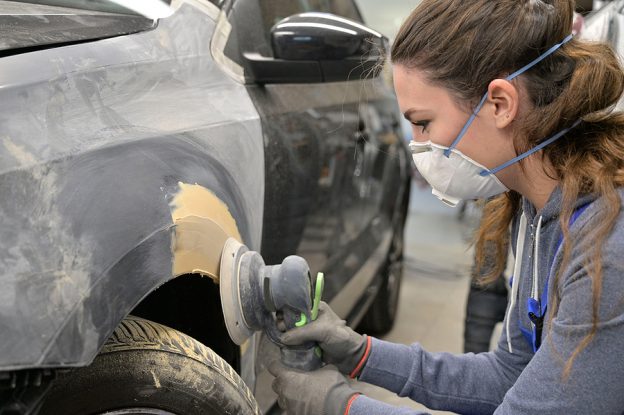
In the UK apprentices are considered to be employed, so your income is taxed. The amount you are taxed depends on how much you earn, just like every other taxpayer.
The mechanics tax rebate service we offer has been supporting mechanics of all ages since 2002. Many of our clients started using our tax services when they first started in the trade and have used us ever since to claim back the income tax they are owed due to the tools and toolboxes they buy for work purposes.
How is an apprenticeship defined by the Tax Office?
An apprenticeships are on the job training programmes that are funded by the government. You learn while you’re working and earn recognised qualifications. There are a huge variety to choose from and are all different lengths. As soon as you are 16, you can apply for an apprenticeship in the industry you want to work in. There is no upper age limit to starting an apprenticeship.
What are the rules of an apprenticeship?
As an apprentice, you are an employee. This means that all the employment rights covering your colleagues also apply to you. There are a couple of particular issues that you might not be aware of.
If you are 16 or 17, there are some extra regulations that your employer must abide by. You are classed as a young worker and should get at least a half hour break on a shift longer than four and half hours. You must also not work longer than eight hours per day, or 40 hours within one week.
You have 20 days holiday entitlement per year and Bank Holidays, as an apprentice. Obviously, this needs to be worked out with your employer.
The hours you work are very important to ensure you are meeting the terms of your apprenticeship. You should be on a minimum of 30 hours per week. In exceptional circumstances, this could go as low as 16 hours per week, but the length of the apprenticeship would extend accordingly.
How much is apprenticeship pay?
Apprentices must be paid for their normal working hours and any training that’s part of your course (like a day a month at college).
You are entitled to the apprentice rate of pay of £4.15 per hour when you are under 19, or are in your first year of apprenticeship (regardless of your age). Once you are in your second year of an apprenticeship and are over 19 years old you should be paid the National Minimum Wage for your age.
National Minimum Wage hourly rates 2020-21
Age 18-20: £6.45
Age 21-24: £8.20
Age 25+: £8.72
How much tax do I pay?
Every UK taxpayer can earn £12,500 tax free. This is called your Personal Allowance and the amount can change every year. So if your Apprenticeship income doesn’t go over £12,500 you won’t have to pay any income tax at all.
As an employee, you pay your tax through the Pay As You Earn (PAYE) scheme. This means the tax you owe is taken off before you get your wages.
Income is taxed at different rates, depending on how much you earn.
For example in the 2020/2021 tax year:
- Up to £12,500: no tax to pay
- £12.501 – £50,000: 20 % Basic rate
- £50,001 – £150,000: 40 % Higher rate
- £150,000+: 45% Additional rate
These are the rates for the 2020-21 tax year. Even if you have a second job to supplement your apprenticeship income, the likelihood is that you’ll only be in the 20% Basic Rate tax bracket. And only the amount over £12,500 is taxed.
For example:
- Your total annual earnings are £14,000.
- The first £12,500 = tax free.
- The rest of the £1,500 is liable for income tax at 20%.
- 20% of £1,500 = £300.
- You pay £300 income tax for the whole year.
Do I pay National Insurance Contributions as an apprentice mechanic?
As an employee, you pay Class 1 National Insurance Contributions (NICs). This means 12% of your income between £183 and £962 per week. When you earn over £962 per week, you pay an extra 2% NICs.
My manager said I can claim tax relief on my new tool box, is this true?
It’s absolutely true that there are work expenses tax reliefs and allowances that apply to your trade. Although you have to be paying at least basic rate tax in the tax year you make a claim. Find out all about your tax position in our Apprentice Mechanics Tax Rebate Guide.
A great place to start is to keep receipts for everything. Even if you know you’re not over the £12,500 mark, it’s an excellent habit to get into from the start. You don’t need to buy an accountancy app. Just always ask for a receipt and put it somewhere safe. An old envelope or shoebox will do for now or keep it online in a folder. Your Mac Tool or Snap On tool dealer will usually email you your receipt.
And the same goes for anything for work online, save the receipts and activity reports in a folder.
When it comes time to make a tool tax rebate claim, you’ll see that the different tax allowances and reliefs all have different evidence requirements. So if you haven’t got the proof of purchase, you’re doing yourself out of potential tax rebate money. If it turns out we don’t need half of them, it’s easy enough to delete them or stick them in the recycling.
You don’t have to put in a claim by yourself. HMRC are a rather intimidating prospect. We can act on your behalf and basically do it all for you. You give us your permission and necessary information and we submit your tax rebate claim. You just need to decide what you’re going to spend it on.







